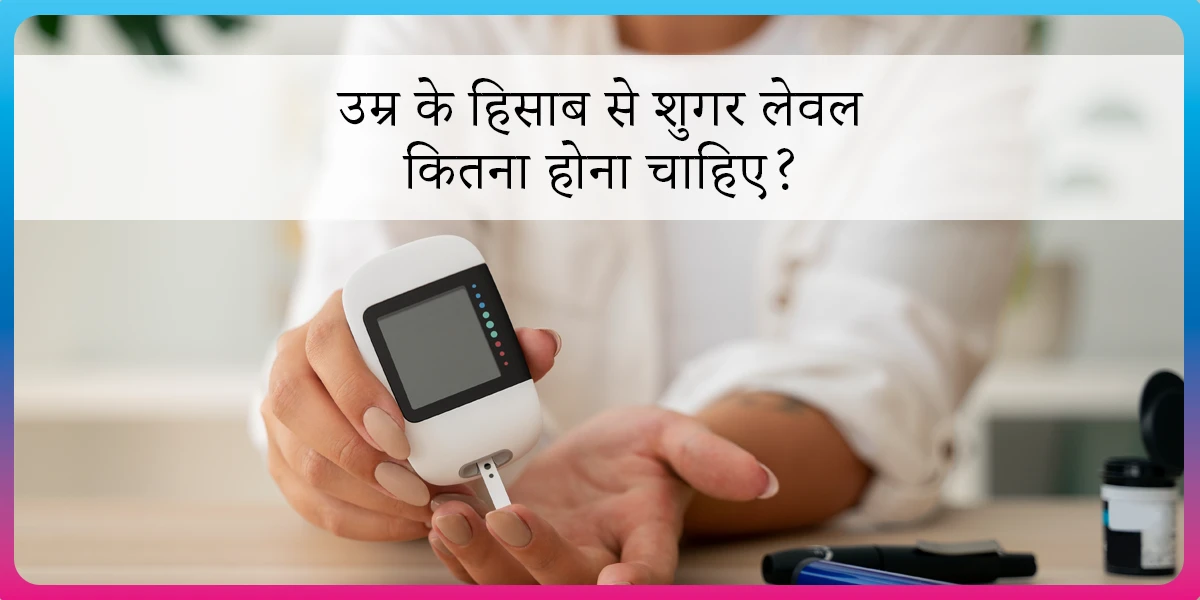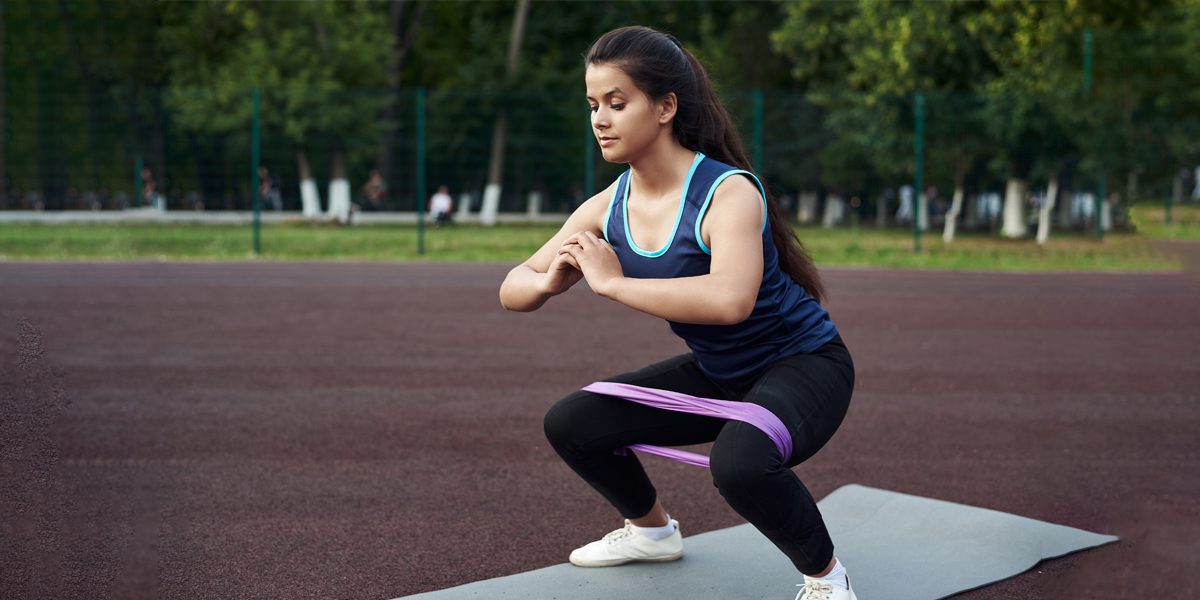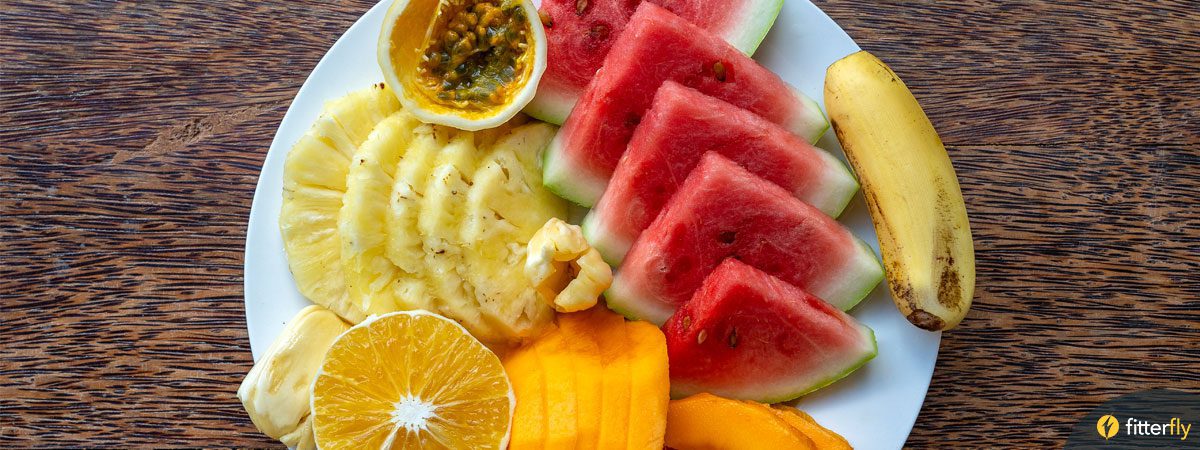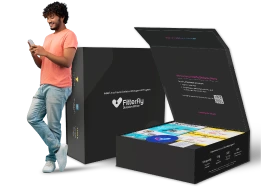What Should You Eat and Avoid to Prevent Diabetes?
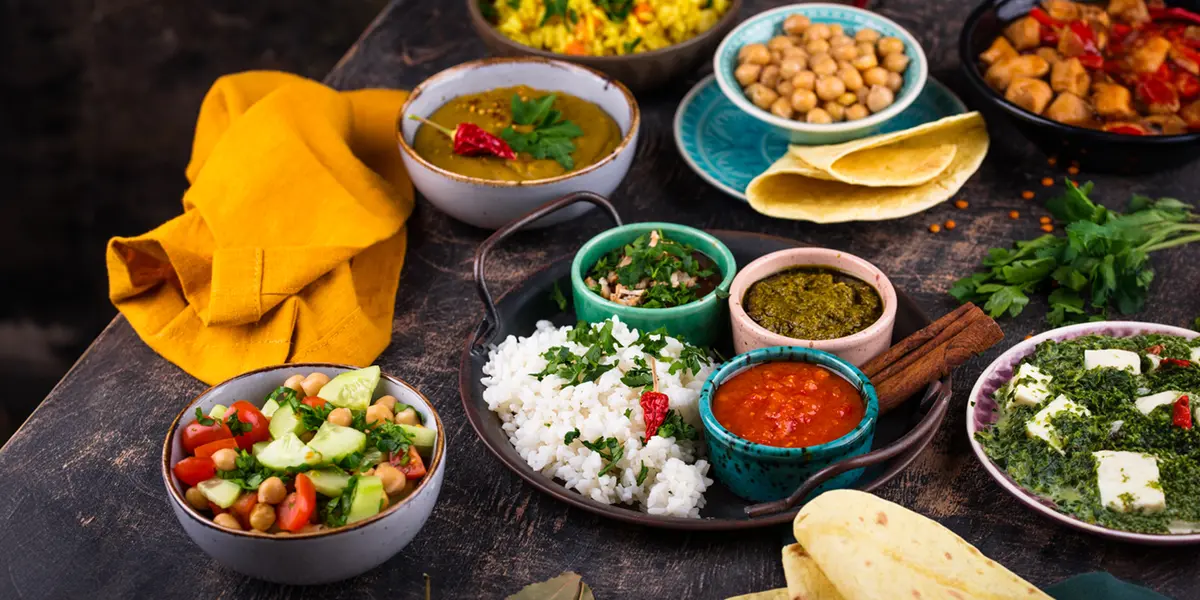
Veena has a family history of diabetes, with her father living with diabetes for the past 25 years. So, since turning 30, she’s been proactive about her health and takes conscious steps to prevent diabetes.
She ensures she’s on the right track, from following a balanced diet to staying physically active to managing sleep and stress. She regularly consults her doctor and dietitian to stay informed and make better food choices. But despite her efforts, she often wonders if there is such a thing as a perfect diabetes diet.
The truth is, there’s no one-size-fits-all diabetes diet. However, the term is often used to describe a way of eating that focuses on:
- Reducing or avoiding foods that can cause blood sugar spikes.
- Including foods that help maintain stable blood sugar levels and support overall health.
If you’re someone like Veena – taking charge of your health and looking for a practical list of foods to eat and avoid to prevent diabetes – then this blog is just for you!
Let’s explore the foods that can help you stay on track and take control of your health.
Diet To Prevent Diabetes
A well-balanced diet for diabetes prevention focuses on being low in calories and unhealthy fats while being rich in fiber and protein. Such a diet not only helps in maintaining healthy blood sugar levels but also supports weight management, improves digestion, and enhances overall well-being.
Prioritizing whole, nutrient-dense foods can reduce the risk of insulin resistance and promote long-term metabolic health*.
| Metabolic health means how well your body uses food for energy and keeps things like blood sugar, cholesterol, and blood pressure at healthy levels. Good metabolic health helps prevent problems like diabetes and heart disease. Eating healthy food, staying active, and reducing stress can keep it in good shape. |
How It Helps?
If you are prone to developing diabetes or have prediabetes, a diabetes-friendly diet can:
- Help control and manage your blood glucose levels to prevent hyperglycemia
- Manage your weight better and help you reduce the extra kilos
- Reduce your risk of cardiovascular diseases
- Reduce the risk of damage to liver and kidney
To know your chances of Diabetes reversal, take the Diabetes Reversal TestDiabetes Reversal
Calculator
9 Foods to Eat to Prevent Diabetes
Including these foods regularly in meals can help maintain steady blood sugar levels and lower the risk of diabetes.
1. Vegetables
Non-starchy vegetables are rich in fiber, vitamins, and antioxidants, helping regulate blood sugar and improve overall health.
- Dark Green Leafy Vegetables: Gongura, Malabar spinach (poi saag), mustard leaves (sarso saag), spring onion leaves, dill leaves (soa), roselle leaves (ambadi or pitwa), spinach (palak), fenugreek leaves (methi), and amaranth (chaulai) help improve insulin sensitivity and digestion.
How To Include Them in Your Diet?
Add them to dals, sabzis, parathas, or knead them into the dough for nutritious stuffed rotis/paratha and have them with curd.
Other Non-Starchy Vegetables: Bitter gourd (karela), bottle gourd (lauki), ridge gourd (turai), capsicum (shimla mirch), and tomatoes (tamatar) provide essential nutrients without raising blood sugar levels.
How To Include Them in Your Diet?
Use in sabzis, curries, chutneys, or raita. Some, like tomato, cucumber, capsicum, cabbage, and onion, can simply be as salad.
2. Whole Grains and Millets
Whole grains and millets provide slow-releasing carbohydrates that help maintain steady energy levels and improve blood sugar control.
- Whole Grains: Wheat (gehun), brown rice, quinoa and oats are rich in fiber and nutrients, which help slow glucose absorption and keep sugar levels stable.
How To Include Them in Your Diet?
Use for rotis, daliya, or as stuffing for parathas.
- Millets: especially the minor millets like like foxtail millet (kangni), little millet (kutki), kodo millet (kodra), barnyard millet (samak), and proso millet (cheena) offer:
- Low glycemic index, releasing sugar gradually into the bloodstream.
- High fiber content, aiding digestion and satiety.
- Rich in minerals, such as magnesium, which supports insulin function.
How To Include Them in Your Diet?
Use in dosa or idli batter, cook as khichdi, mixed grain atta, or replace rice in meals with millet.
3. Legumes and Pulses
Lentils (daals), chickpeas (chana), kidney beans (rajma), and black-eyed peas (lobia) are high in protein and fiber, aiding in blood sugar control.
How To Include Them in Your Diet?
Prepare as dals, tikkis, mix with vegetables in curries, or enjoy sprouting with chaat masala.
4. Nuts and Seeds
Healthy fats and fiber in nuts and seeds support blood sugar control and heart health.
- Nuts: Almonds (badam), walnuts (akhrot), and pistachios (pista) provide healthy fats and protein that help prevent sugar spikes.
How To Include Them in Your Diet?
Eat as snacks as a nut mix.
- Seeds: Flaxseeds (alsi), chia seeds, and pumpkin seeds help regulate insulin response and provide omega-3 fatty acids.
How To Include Them in Your Diet?
Add to chutneys, sprinkle over sabzis, or mix in atta.
5. Fruits
Fruits with a low glycemic index provide natural sweetness without causing sugar spikes.
- Citrus Fruits: Oranges (santara), sweet lime (mosambi), and lemons (nimbu) are rich in fiber and vitamin C.
How To Include Them in Your Diet?
Enjoy them whole – nothing beats the freshness or satisfaction of having whole fruit or as mixed fruit salad with nuts and seeds. Completely avoid fruit juices of any type with or without sugar/sweetener.
- Fiber-Rich Fruits: Guava (amrud), apples (seb), and papaya (papita) provide essential nutrients and fiber.
How To Include Them in Your Diet?
Eat raw as snacks or add to fruit chaat.
REVERSED Diabetes in 3 months


5.7%
Happy members
EMI
Guarantee
4.8/5
Diabetes Prime Program
6. Dairy Products
Low-fat dairy products are good sources of vegetarian protein and calcium without raising blood sugar.
- Options: Curd (dahi), buttermilk (chaas), and low-fat paneer (cottage cheese).
How To Include Them in Your Diet?
Enjoy as a side with meals or use in curries and parathas.
7. Fish and Seafood
Fish and seafood are excellent sources of high-quality protein and omega-3 fatty acids, which help reduce inflammation and improve insulin sensitivity.
- Options: Fatty fish such as salmon, mackerel (bangda), and sardines (pedvey), as well as shellfish like prawns and crabs, are beneficial.
How To Include Them in Your Diet?
Whether it’s the comforting taste of macher jhol or even basic fish curry at home, or a simple grilled fish with a squeeze of lemon and masala, there’s no shortage of ways to enjoy it!
8. Eggs and Poultry
Eggs and lean poultry provide high-quality protein, keeping blood sugar levels steady and promoting satiety.
- Eggs: Rich in protein and healthy fats that do not spike blood sugar levels.
How To Include Them in Your Diet?
From a quick-boiled egg in the morning to fluffy masala bhurji with roti, or even adding them to a rich egg curry – eggs fit into every meal effortlessly.
- Lean Poultry: Chicken (murgh) without skin is a good source of lean protein, aiding in muscle maintenance and weight management.
How To Include Them in Your Diet?
Whether it’s the classic home-style chicken curry, smoky grilled chicken tikka, or a simple roasted chicken with desi spices, poultry can be enjoyed in many tasty and healthy ways.
9. Spices and Herbs
Certain spices and herbs naturally help lower blood sugar levels and improve digestion. Including them in your daily meals can support better diabetes management.
- Fenugreek (Methi): Known to improve insulin sensitivity and reduce blood sugar levels.
- Cinnamon (Dalchini): Helps regulate blood sugar and may support better insulin function.
- Garlic (Lahsun): Contains compounds that help lower both fasting and post-meal blood sugar levels.
How To Include Them in Your Diet?
Without tadka, our favorite dishes feel incomplete whether it’s kadhi, daal, or a rich gravy sabzi, adding garlic, fenugreek, and cinnamon brings out the true flavor! Be it the homely taste of maa ke haath ki daal or the perfect balance in your morning chai, these spices do it all.
You can even soak them in water overnight and sip it in the morning, just like dadi used to recommend for good health.
What Foods to AVOID in Diabetes?
Certain foods can cause blood sugar spikes and increase the risk of diabetes-related complications. Limiting or avoiding them can help maintain better glucose control.
1. Sugary Drinks
Beverages like shikanji, sherbet, sweetened teas, and packaged fruit juices contain high amounts of sugar, leading to rapid blood sugar spikes.
Tip: Replace them with plain water, buttermilk (chaas), sattu drink, or unsweetened herbal teas.
2. Carb-Heavy Foods
Refined carbohydrates such as white rice, maida-based breads, and bakery items lead to sudden sugar surges and provide little nutritional value.
Tip: Choose whole grains like brown rice, chapatis made from multi-grain atta, or dishes prepared with millet (in limited quantity).
| Note: Even healthy foods should be consumed in moderation as part of a balanced, low-calorie diet. |
3. Alcohol
Regular alcohol consumption can interfere with blood sugar regulation, contribute to weight gain, and add empty calories without essential nutrients.
Tip: Avoid alcohol, or if you still want to consume it, make an informed decision and have it in minimal quantities. Our expert nutritionists at Fitterfly recommend avoiding alcoholic drinks altogether and opt for healthier alternatives like lemon-infused water or spiced buttermilk.
4. Trans Fats
Trans fats, found in deep-fried snacks, bakery items, margarine, and processed foods, increase insulin resistance and raise the risk of heart disease.
Tip: Avoid fried and packaged snacks; opt for home-cooked meals using healthier oils like mustard or coconut oil. After all, nothing beats homemade snacks prepared with healthy fats such as ghee, mustard oil, and groundnut oil.
5. High-Sodium Foods
Processed foods such as chips, pickles, packaged soups, and instant noodles contain excessive salt, which can lead to high blood pressure and water retention, worsening diabetes symptoms.
Tip: Limit processed foods and enjoy homemade fresh pickles with less salt – they’re delicious as side additions to your meal.
6. Sweets and Desserts
Traditional sweets (mithai) like laddoos, barfis, jalebi, and even jaggery, honey or dates-based sweets can cause blood sugar spikes despite being considered natural alternatives.
Tip: Instead of sweets, opt for healthier alternatives like fresh fruit, roasted nuts, or low-sugar homemade sweets, but as little as possible.
7. Deep-Fried and Fast Foods
Foods like samosas, bhature, vada pav, puri, medu wada, pakoras, fries, frozen foods like nuggets, corn balls, aloo tikki, etc and burgers contain unhealthy fats and excess calories, contributing to weight gain and insulin resistance.
Tip: Opt for baked or air-fried alternatives and try healthier options like grilled paneer tikka, grilled chicken, or a steamed vegetable salad with a squeeze of lemon, a sprinkle of chaat masala, and chopped coriander – yummmmm!!
8. Processed and Packaged Foods
Ready-to-eat meals, processed meats, and instant mixes contain preservatives, added sugars, and unhealthy fats that negatively impact blood sugar levels.
Tip: Prefer fresh, home-cooked meals with seasonal ingredients that are both nourishing and flavorful.
9. High-Fat Dairy Products
Full-fat dairy items like malai, cream, and processed cheese can add excess saturated fats, contributing to insulin resistance and weight gain.
Tip: Choose low-fat dairy options such as toned milk, curd, and homemade paneer in moderation.
10. Bakery Products
Items like cakes, pastries, biscuits, sweet buns, sweet rolls, naankhatai, salted biscuits, doughnuts, chocolate balls and cookies are loaded with refined flour, sugar, and unhealthy fats, which can elevate blood sugar levels quickly.
Tip: Swap them for whole-grain homemade baked items or traditional snacks like roasted chana or makhana.
11. Hidden Sugars in Packaged Foods
Many processed foods like ketchup, sauces, salad dressings, flavoured yoghurts, and breakfast cereals contain hidden sugars that can raise blood glucose levels unexpectedly.
Tip: Always check nutrition labels for added sugars and opt for homemade versions or sugar-free alternatives.
Fitterfly – How to Read Food Labels?
12. Starchy Vegetables
Vegetables such as potatoes, sweet potatoes, and yams have a high glycemic index, which can cause blood sugar spikes if consumed in large quantities.
Tip: Limit portion sizes and replace them with non-starchy vegetables like carrots, spinach, or cauliflower.
13. High-Fat Meats
Red meats like mutton, processed meats such as sausages and bacon, and organ meats contain high levels of saturated fats, increasing the risk of insulin resistance and heart disease.
Tip: Choose lean meats like skinless chicken or fish prepared with minimal oil for a healthier option.
14. Fast Food and Street Snacks
Items such as pav bhaji, samosas, vada pav, and chaat can be high in refined carbs, unhealthy fats, and sodium, all of which negatively impact blood sugar control.
Tip: Enjoy healthier versions made at home with whole grains and baked or steamed options.
15. Highly Processed Breakfast Options
Ready-to-eat cereals, flavoured oats, and instant breakfast mixes often contain high amounts of sugar and refined carbs, leading to rapid blood sugar spikes.
Tip: Opt for traditional breakfast options like an omelette or whole-grain porridge.
How We at Fitterfly Can Help You?
At Fitterfly, we understand that everyone’s body and lifestyle are unique, and so are their dietary needs. That’s why we focus on creating personalized meal plans designed specifically for you. Our Nutrition Coaches analyze your eating habits, health goals, and Post-Glucose Response (PGR) scores to understand how your body responds to different foods.
We incorporate locally available, diabetes-friendly ingredients like spinach (palak), millets (ragi, jowar), and lemons (nimbu) into your meal plan, making it easy to follow and culturally familiar. We also ensure that your favorite foods be it seasonal mangoes (aam) or festive treats, are included in moderation, so you can enjoy them guilt-free without feeling deprived.
But we don’t just stop at “what to eat.” Our approach focuses on “how and when to eat” to fit seamlessly into your daily routine for long-term success. Whether it’s planning meals around your work schedule, family commitments, or social events, we help you create a balanced lifestyle that works for you.
With Fitterfly Diabetes Prime Program, your diet plan isn’t just a list of do’s and don’ts, it’s a sustainable way to achieve better health while enjoying the foods you love, without unnecessary restrictions.
Our expert team of Nutrition Coaches, Fitness Coaches, and Success Coaches work together to provide 360-degree support for your diabetes management. Whether it’s customized meal plans, tailored fitness routines, or personalized stress management strategies, our coaches guide you every step of the way to make lifestyle changes that truly last.
Call us on 08068507599 to know more about how we can help you better manage your diabetes.
This blog provides general information for educational and informational purposes only and shouldn't be seen as professional advice.
Frequently Asked Questions
What foods should you avoid to prevent diabetes?
Avoid sugary drinks, refined carbs, maida items, deep-fried items and foods high in trans fats. Opt for whole foods and fiber-rich options instead.
What is the best food to reduce diabetes?
Fiber-rich foods like leafy greens, whole grains, and nuts are excellent for managing and preventing diabetes.
What foods prevent diabetes immediately?
No food works “immediately,” but including foods like green leafy vegetables such as spinach (palak), whole grains, cinnamon, and garlic (lahsun) can gradually help stabilize blood sugar levels. Along with a balanced diet, maintaining a healthy lifestyle by getting enough sleep, managing stress, and staying physically active through regular exercise also plays a crucial role in preventing diabetes over time.
What are the 6 foods that prevent diabetes?
There’s no specific list of foods that can completely prevent diabetes. However, eating a balanced diet that includes a variety of nutrient-rich foods can help manage blood sugar levels and reduce the risk over time. Focus on whole grains, green leafy











